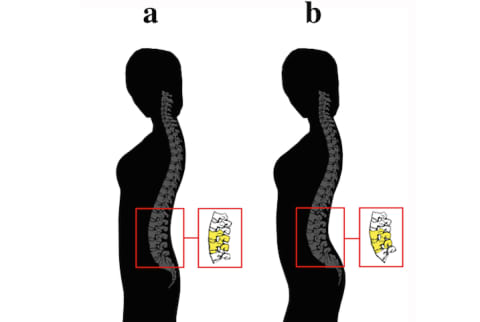Advertisement


Women are bombarded on a daily basis by mixed messages on how we're supposed to look, particularly from the media. One day, we're supposed to be breast-less and skinny, and the next day we're expected to have voluptuous curves.
Well, a new study attempts to shed some much-needed light on today's standards of beauty. To do this, researchers at the University of Texas at Austin decided to focus on the specific preference of many heterosexual men for for a curvy backside.
What they found was, unsurprisingly, an evolutionary explanation. Women with a "theoretically optimal angle of lumbar curvature," a 45.5 degree curve from back to buttocks, can most effectively carry out multiple pregnancies — which, back in the time of our ancient ancestors — was the most primal basis for attraction.
"This adds to a growing body of evidence that beauty is not entirely arbitrary, or 'in the eyes of the beholder' as many in mainstream social science believed, but rather has a coherent adaptive logic," said the study's co-author David Buss, a UT Austin psychology professor, in a press release.
This research consisted of two studies. The first examined vertebral wedging, an underlying spinal feature that can influence the actual curve in women's lower backs.
They asked 100 men to rate the attractiveness of several manipulated images displaying spinal curves ranging across the natural spectrum. They found that most men were attracted to images of women with the hypothesized optimum of 45 degrees of lumbar curvature.
Lead author David Lewis, a psychologist at Bilkent University, explains:
This spinal structure would have enabled pregnant women to balance their weight over the hips. These women would have been more effective at foraging during pregnancy and less likely to suffer spinal injuries. In turn, men who preferred these women would have had mates who were better able to provide for fetus and offspring, and who would have been able to carry out multiple pregnancies without injury.
And for the second study, the researchers addressed the question of whether heterosexual men prefer this angle because it reflects a larger butt, or whether it can be attributed to the angle in the spine itself.
This time, 200 men were asked to rate the attractiveness of images of women with differing buttock size and vertebral wedging, but all with the same 45.5-degree curve in their spines.
They found that, again, men consistently preferred women whose spinal curvature was closer to optimum — regardless of butt size.
Clearly, evolution takes time. This primal instinct has been around for thousands of years, so who knows how long it may take to fall by the wayside.
So, the next time you roll your eyes at someone's wide-eyed reaction to a certain, stand-out physical attribute of another person, keep in mind that we're all still got a little bit of caveman and cavewoman in us. Just as long as he or she keeps it respectful.
In the meantime, I think Sir Mix-a-Lot should consider changing the title of his song "Baby Got Back" to "Baby Got Spinal Curve."